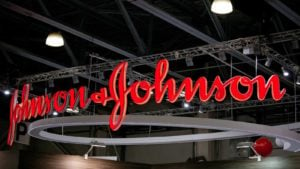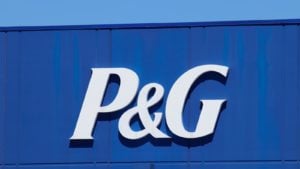
Dividend Aristocrats are stocks that have grown their dividends for at least 25 consecutive years. Most of these companies have achieved such long dividend growth streaks thanks to their strong business models, which are characterized by a meaningful business moat and resilience to recessions.
The following 3 Dividend Aristocrats are excellent considerations for buy-and-hold investors due to their long-term growth potential and lengthy dividend histories.
Johnson & Johnson (JNJ)

Johnson & Johnson (NYSE:JNJ) is a diversified healthcare company and a leader in the area of pharmaceuticals and medical devices Johnson & Johnson was founded in 1886 and employs more than 150,000 people around the world. The company is projected to generate approximately $89 billion in revenue this year.
On Jan. 23, 2024, Johnson & Johnson announced fourth quarter and full-year results for the period ending Dec. 31, 2023. For the quarter, revenue grew 7.3% to $21.4 billion, which was $380 million more than expected. Adjusted earnings per share of $2.29 compared to $2.05 in the prior year and were 1 cent ahead of estimates.
For the year, revenue grew 6.5% to $85.2 billion while adjusted EPS of $9.92 compared to $10.15. Adjusting for the spinoff off Kenvue (NYSE:KVUE), adjusted EPS increased 11.1% from $8.93 in the prior year.
The company expects revenue in a range of $88.2 billion to $89 billion, representing sales growth of 5% to 6%. It expects EPS in a range of $10.55 to $10.75 for the year.
Johnson & Johnson has grown earnings over the past 10 years at a rate of 6.3%. The company managed to grow earnings before, during and after the last recession, showing that its products are in demand regardless of market conditions.
Johnson & Johnson has a reasonably low dividend payout ratio of 45% estimated for 2024. This gives the company ample room to raise its dividend, even in a prolonged recession. On April 18, 2023, Johnson & Johnson announced that it was increasing its quarterly dividend 5.3% to $1.19, extending the company’s dividend growth streak to 61 consecutive years.
Procter & Gamble (PG)

Procter & Gamble (NYSE:PG) is a consumer products giant that sells its products in over 180 countries. Notable brands include Pampers, Luvs, Tide, Gain, Bounty, Charmin, Puffs, Gillette, Head & Shoulders, Old Spice, Dawn, Febreze, Swiffer, Crest, Oral-B, Scope, Olay and many more. The company generated $82 billion in sales in fiscal 2023.
In late January, Procter & Gamble reported financial results for the second quarter of fiscal 2024. It grew its sales and its organic sales by 3% and 4%, respectively, over last year. Organic sales growth resulted from price hikes, which offset a marginal decrease in volumes. Despite the headwind of cost inflation, EPS grew 16% thanks to price hikes, from $1.59 to $1.84, beating analysts’ consensus by 14 cents.
The firm’s sales amid strong price hikes are a testament to the strength of the brands of Procter & Gamble. The company reiterated its guidance for 4%-5% organic sales growth in fiscal 2024 and improved its guidance for growth of EPS to 8%-9%.
Procter & Gamble’s dividend payout ratio has oscillated between 50% and 75% in the last decade, with the current mark at 59%. This is somewhat high for your typical company, but well within a reasonable range for such a high-quality firm. As a result, Procter & Gamble has paid a dividend for 133 years and has grown its dividend for 67 consecutive years – one of the longest active streaks of any company.
Atmos Energy (ATO)

Atmos Energy (NYSE:ATO) can trace its beginnings all the way back to 1906 when it was formed in Texas. The company now distributes and stores natural gas in eight states, serves over 3 million customers, and should generate about $5 billion in revenue this year.
Atmos posted fiscal first quarter earnings on Feb. 6, 2024, and results were fairly strong. EPS came to $2.08, or $311 million on a dollar basis. Capital expenditures for the quarter were $770 million, with 82% of that capex being focused on safety and reliability. Atmos ended the quarter with $3.2 billion in available liquidity.
Atmos reaffirmed its outlook for $6.45 to $6.65 in EPS for this year. Company management continues to expect 6% to 8% annual earnings-per-share growth, in line with our estimate.
Atmos’ EPS has risen steadily in the past decade as the company continues to grow both organically and through acquisitions. We are forecasting a five-year annual growth rate of 7% moving forward, in line with our prior estimate. The company can achieve this growth through continued improvements in gross margin, reductions in operating costs as a percentage of revenue, and top line growth via acquisitions as well as customer growth.
The company’s competitive advantage is in its wide distribution area and lack of direct competition in its service areas for residential and commercial customers. In addition, discretionary use of natural gas is low as people use what they need, regardless of economic conditions. As a result, Atmos Energy has increased its dividend for 40 consecutive years.
On the date of publication, Bob Ciura did not hold (either directly or indirectly) any positions in the securities mentioned in this article. The opinions expressed in this article are those of the writer, subject to the InvestorPlace.com Publishing Guidelines.





